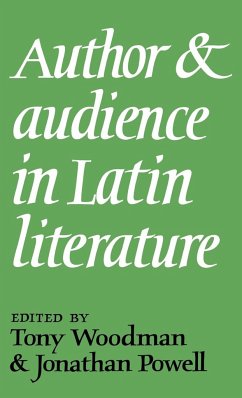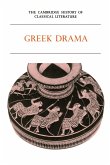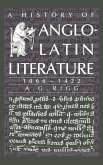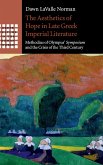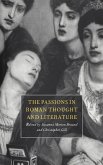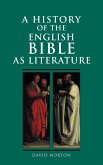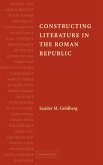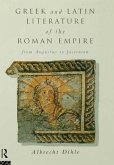The relationship between the author and his audience has received much critical attention from scholars in non-classical disciplines in recent years, yet the nature of much ancient literature and of its 'publication' meant that audiences in ancient times were more immediate to their authors than in the modern world. This book contains essays by distinguished scholars on the various means by which Latin authors communicated effectively with their audiences. The authors and works covered are Cicero (as both orator and letter-writer), Catullus, Lucretius, Propertius, Horace's Odes, Virgil's Aeneid, Ovid's Metamorphoses, Senecan tragedy, Persius, Pliny's letters, Tacitus' Annals and medieval love lyric. Contributors have provided detailed analyses of particular passages in order to throw light on the many different ways in which authors catered for their audiences by fulfilling, manipulating and thwarting their expectations; and in an epilogue the editors have drawn together the issues raised by these contributions and have attempted to place them in an appropriate critical context. Author and Audience in Latin Literature is a sequel to the influential series of essay-collections edited by Tony Woodman and David West and published by Cambridge University Press: Quality and Pleasure in Latin Poetry (1974), Creative Imitation and Latin Literature (1979) and Poetry and Politics in the Age of Augustus (1984).
Table of contents:
1. The orator and the reader: manipulation and response in Cicero's Fifth Verrine R. G. M. Nisbet; 2. Stratagems of vanity: Cicero, Ad familiares 5.12 and Pliny's letters Niall Rudd; 3. 'Shall I compare thee ...?' Catullus 68B and the limits of analogy D. C. Feeney; 4. Atoms and elephants: Lucretius 2.522-40 T. P. Wiseman; 5. In memoriam galli: Propertius 1.21 Ian M. Le M. Duquesnay; 6. The power of implication: Horace's invitation to Maecenas (Odes 1.20) Francis Cairns; 7. The voice of Virgil: the pageant of Rome in Aeneid 6 G. P. Goold; 8. From Orpheus to ass's ears: Ovid, Metamorphoses 10.1-11.193 D. E. Hill; 9. Poet and audience in Senecan tragedy: Phaedra 358-430 Gordon Williams; 10. Persius' first satire: a re-examination J. G. F. Powell; 11. Nero's alien capital: Tacitus as paradoxographer (Annals 15.36-7) Tony Woodman; 12. Amor clericalis P. G. Walsh; 13. Epilogue.
This is a book of essays by distinguished scholars on the relationship between Latin authors and their audiences. The authors and works covered are Cicero (as both orator and letter-writer), Catullus, Lucretius, Propertius, Horace's Odes, Virgil's Aeneid, Ovid's Metamorphoses, Senecan tragedy, Persius, Pliny's letters, Tacitus' Annals and medieval love lyric.
Essays by distinguished scholars on the relationship between Latin authors and their audiences.
Table of contents:
1. The orator and the reader: manipulation and response in Cicero's Fifth Verrine R. G. M. Nisbet; 2. Stratagems of vanity: Cicero, Ad familiares 5.12 and Pliny's letters Niall Rudd; 3. 'Shall I compare thee ...?' Catullus 68B and the limits of analogy D. C. Feeney; 4. Atoms and elephants: Lucretius 2.522-40 T. P. Wiseman; 5. In memoriam galli: Propertius 1.21 Ian M. Le M. Duquesnay; 6. The power of implication: Horace's invitation to Maecenas (Odes 1.20) Francis Cairns; 7. The voice of Virgil: the pageant of Rome in Aeneid 6 G. P. Goold; 8. From Orpheus to ass's ears: Ovid, Metamorphoses 10.1-11.193 D. E. Hill; 9. Poet and audience in Senecan tragedy: Phaedra 358-430 Gordon Williams; 10. Persius' first satire: a re-examination J. G. F. Powell; 11. Nero's alien capital: Tacitus as paradoxographer (Annals 15.36-7) Tony Woodman; 12. Amor clericalis P. G. Walsh; 13. Epilogue.
This is a book of essays by distinguished scholars on the relationship between Latin authors and their audiences. The authors and works covered are Cicero (as both orator and letter-writer), Catullus, Lucretius, Propertius, Horace's Odes, Virgil's Aeneid, Ovid's Metamorphoses, Senecan tragedy, Persius, Pliny's letters, Tacitus' Annals and medieval love lyric.
Essays by distinguished scholars on the relationship between Latin authors and their audiences.

